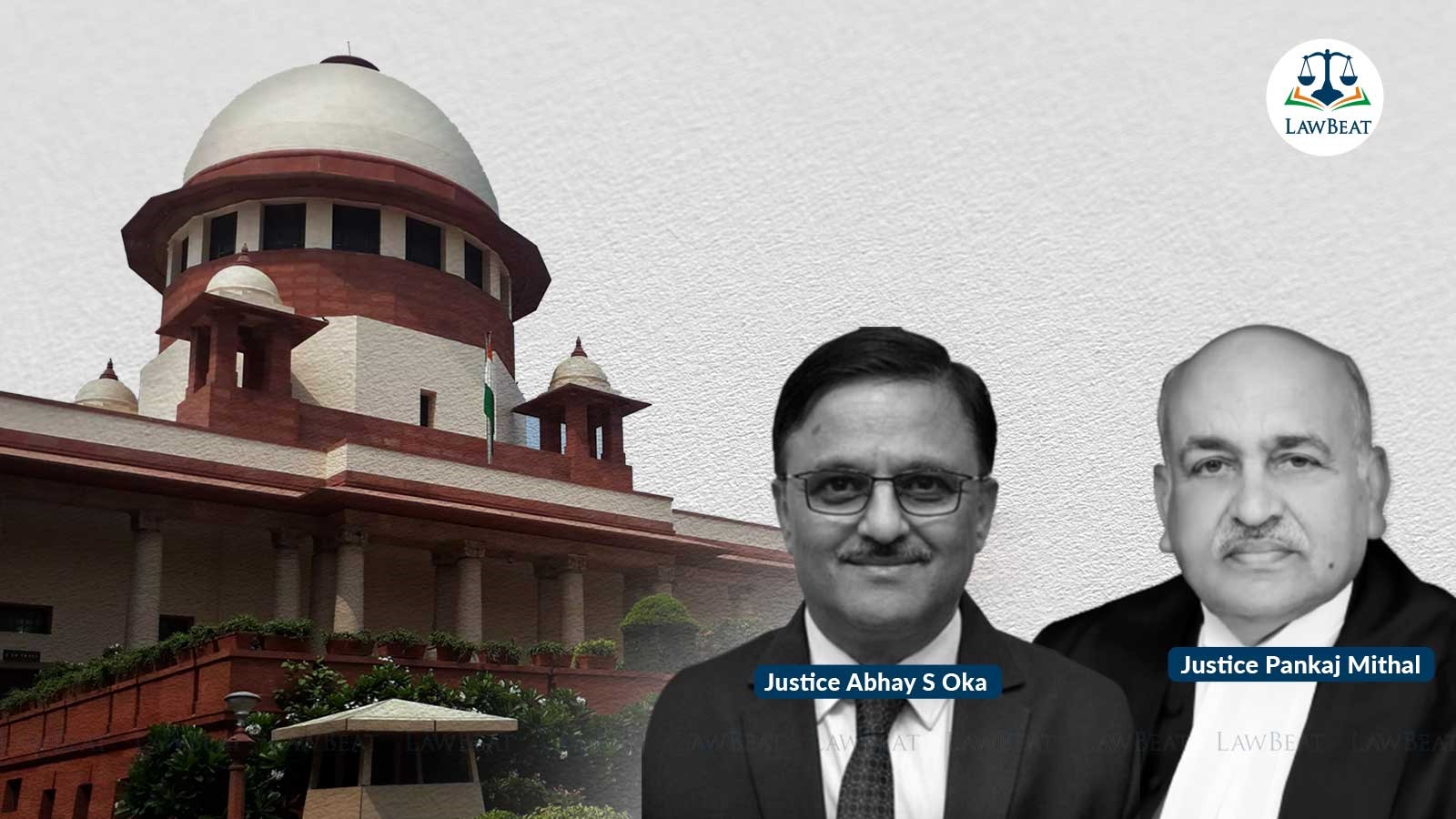'Nature of acquittal immaterial, if info on criminal case not disclosed,' Supreme Court on candidates for disciplined force

Supreme Court had said the candidate, in the first instance, is obliged to give correct information as to his conviction, acquittal or arrest or pendency of the criminal case and there should be no suppression or false mention of required information, secondly, even if truthful declaration is made by him, he would not be entitled to appointment as a matter of right and that the employer still has the right to consider his antecedents
The Supreme Court has said non-disclosure of information about a criminal case faced by a candidate seeking employment in a disciplined force would disentitle him to the appointment as it is immaterial whether he was acquitted honorably or by extending the benefit of doubt.
A bench of Justices Abhay S Oka and Pankaj Mithal set aside the Madras High Court's order which allowed a plea by J Raghunees for appointment as constable in Tamil Nadu police.
The High Court went by the trial court's findings in 2001 that the charges were not proved against him beyond reasonable doubt. It concluded his acquittal was not strictly on the basis of doubt but because of want of evidence and as such it was an honorable acquittal.
Considering an appeal filed by the Director General of Police, Tamil Nadu, the bench said though the candidate may be eligible for appointment but since he has not disclosed the complete information with regard to his involvement in a criminal case, wherein he might have been acquitted earlier even before verification, he cannot escape the guilt of suppressing the material information as required by column 15 of the verification roll.
"Keeping in mind that the respondent was a candidate for recruitment to a disciplined force, the non-disclosure of the information of his involvement in the criminal case and subsequent acquittal therefrom cast a serious doubt upon his character and the antecedents which is sufficient enough to disentitle him from employment," the bench said.
Referring to the Supreme Court's judgement in the case of 'Avtar Singh Vs Union of India' (2016), the bench pointed out the candidate, in the first instance, is obliged to give correct information as to his conviction, acquittal or arrest or pendency of the criminal case and there should be no suppression or false mention of required information. Secondly, even if truthful declaration is made by him, he would not be entitled to appointment as a matter of right and that the employer still has the right to consider his antecedents.
In view of Rule 14(b) of the Tamil Nadu Special Police Subordinate Service Rules,1978, the bench found the candidate has certainly not disclosed the correct information.
"His honorable acquittal or acquittal by giving benefit of doubt is not material and relevant but what is relevant is the full and complete disclosure of the information regarding his involvement in a criminal case which has been suppressed by him," the bench said.
The High Court, in its order, also noted that the respondent was acquitted from the criminal case much before the verification and therefore, rightly thinking that his involvement in the criminal case is of no relevance, he bona fidely failed to mention about the same and as such suppression of this information cannot be considered to be willful or intentional so as to deprive him of service pursuant to his selection.
However, going by the column 15 in verification roll, which specifically read as 'have you ever been concerned in any criminal case as defendant', the bench said the query, in unequivocal terms, inquires from the candidate about his involvement in any criminal case whether in past or present and unaffected by its status or result.
The candidate, in filling up the said verification roll, stated ‘No' meaning thereby he clearly stated that he had not been involved in any criminal case, it said.
"Apparently in the admitted facts, the respondent was involved in a criminal case but had been acquitted therefrom. Thus, it cannot be said that the respondent was not concerned with any criminal case. Therefore, he ought to have disclosed the correct position that he was involved in a criminal case but had been acquitted," the bench said.
The respondent instead of giving the full and complete information simply stated ‘No’ as if he was never involved in any criminal case. The answer of the respondent to the question posed in column 15 of the verification roll undoubtedly conveys the wrong information and amounts to the suppression of the correct information, the bench added.
